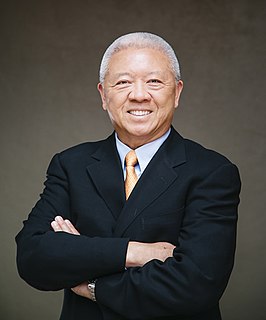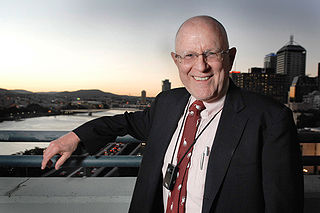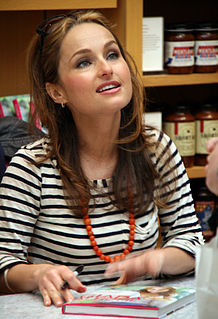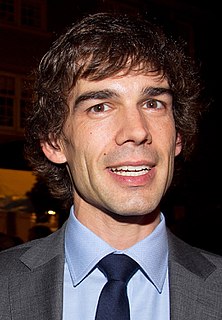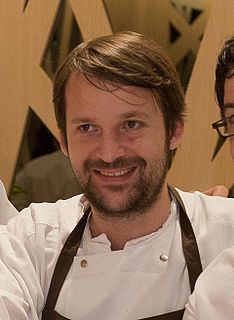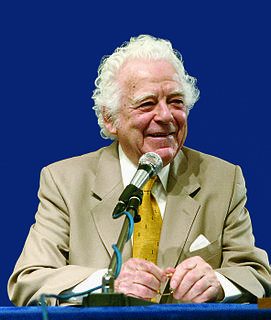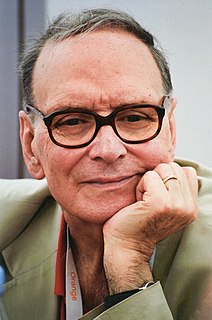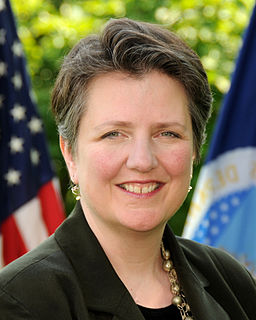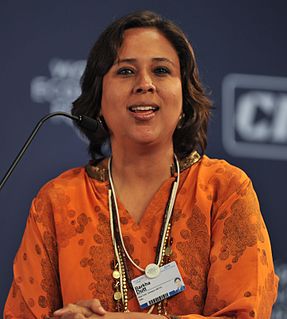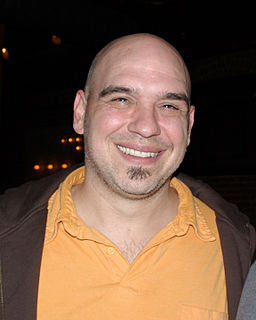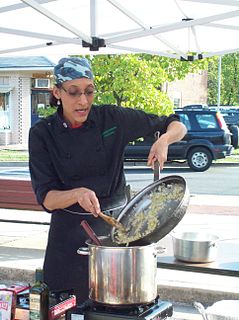Top 1200 Gourmet Food Quotes & Sayings - Page 20
Explore popular Gourmet Food quotes.
Last updated on November 19, 2024.
Even squirrels know enough to store nuts, so that they will have something to eat when food gets scarce. But the welfare state has spawned a whole class of people who spend everything they get when times are good, and look to others to provide for their food and other basic needs when times turn bad.
With the Industrial Revolution, the production of food was delegated to big companies in order for women and men to be in the labour force, to come home, stick something in the oven, and eat. It became a big industry that does not have a love affair with food nor is really concerned about nurturing you or giving you the right nutrition.
Our early 21st century civilization is in trouble. We need not go beyond the world food economy to see this. Over the last few decades we have created a food production bubble-one based on environmental trends that cannot be sustained, including overpumping aquifers, overplowing land, and overloading the atmosphere with carbon dioxide.
I chose to write about food: food is inherently political, but it's also an essential part of people's real lives. It's where the public and private spheres connect. I wanted to show readers that the larger politics of war and economics and U.S. foreign policy are inextricably bound to the supposedly trivial details of our everyday lives.
One of the most disturbing ways that climate change is already playing out is through what ecologists call "mismatch" or "mistiming." This is the process whereby warming causes animals to fall out of step with a critical food source, particularly at breeding times, when a failure to find enough food can lead to rapid population losses.
Taking food alone tends to make one hard and coarse. Those accustomed to it must lead a Spartan life if they are not to go downhill. Hermits have observed, if for only this reason, a frugal diet. For it is only in company that eating is done justice; food must be divided and distributed if it is to be well received.
The average beast of prey is a decent creature who merely kills for the sake of food or in a fight against an enemy. It is only man who calls killing "sport" and kills for the pleasure of killing; not for food, not for self-defense, but just to satisfy some primitive instinct, once necessary and now perverted.
Vietnamese food has probably been saved from the mass market because most people never master the sauces and condiments that must be added to the food, at the table, for its glories to become apparent. It's too much trouble, and a lot of people don't like asking for help, especially if the interaction involves some linguistic awkwardness.
The traditional roots of Scandinavian cuisine are not that spectacular, to say the least. When we write about the traditions that we are inspired by, it's more techniques like smoking, preserving. Many of them are not made to make food delicious; they're just around so that you can make food last through the winter. There isn't a great deal of tradition to tap into.
Every child is born not only with a stomach that has to be catered to, it is also endowed with two hands which can work and produce the food for the stomach. The hands have to be given the strength and skill; they have to learn the lesson of self-reliance. They should never be lazy or slothful. Then, there can be no deficiency in food and no problem of underfeeding.
Humanity must accept that the food, the raw materials, the energy, the scientific knowledge and so on, belongs to everybody, that it is given by Divine providence for all peoples, the rich nations and what are called the developing nations. No one has the right to corner the goods of the world as is done today, whether that be oil or food or any of the things that we think are so important.
I was born in 1928, so in 1943, 1944, we had the war in Rome. There were a lot of hardships, a lack of food, many shortages. So when I worked with the Americans, the English, and the Canadians soon after the war, when I played with them, they paid me with food. That will give you an idea how widespread poverty was at that time.
Every peasant cuisine has incredible ingenious tricks for getting a lot of nutrition out of a small amount of ingredients. There are people who don't have the money to invest in better food, but perhaps they have the time. There's a trade-off: The more time you're willing to put into food preparation, the less money you have to spend.
Consumerism has led us to become used to an excess and daily waste of food, to which, at times, we are no longer able to give a just value, which goes well beyond mere economic parameters. We should all remember, however, that throwing food away is like stealing from the tables of the the poor, the hungry!
Food cannot take care of spiritual, psychological and emotional problems, but the feeling of being loved and cared for, the actual comfort of the beauty and flavour of food, the increase of blood sugar and physical well-being, help one to go on during the next hours better equipped to meet the problems (p. 124).
I don't care if a flight attendant is fat as long as she doesn't sneak back to the galley for a gossip when she should be pushing down the food trolley. I get annoyed when the food trays are slapped down on my seat by bored and disinterested men and women. I look for warmth and comfort, not cold efficiency.
Food security is not in the supermarket. It's not in the government. It's not at the emergency services division. True food security is the historical normalcy of packing it in during the abundant times, building that in-house larder, and resting easy knowing that our little ones are not dependent on next week's farmers' market or the electronic cashiers at the supermarket.
Japanese food is very pretty and undoubtedly a suitable cuisine in Japan, which is largely populated by people of below average size. Hostesses hell-bent on serving such food to occidentals would be well advised to supplement it with something more substantial and to keep in mind that almost everybody likes french fries.
There is no doubt that some plant food, such as oatmeal, is more economical than meat, and superior to it in regard to both mechanical and mental performance. Such food, moreover, taxes our digestive organs decidedly less, and, in making us more contented and sociable, produces an amount of good difficult to estimate.





